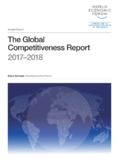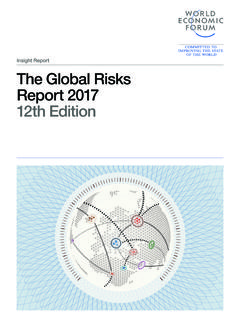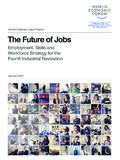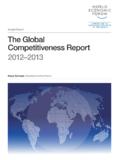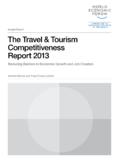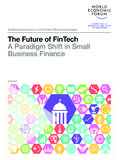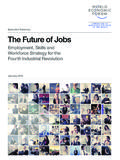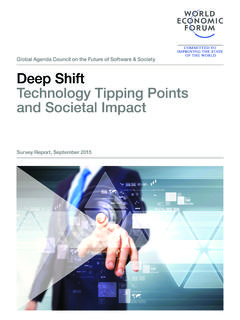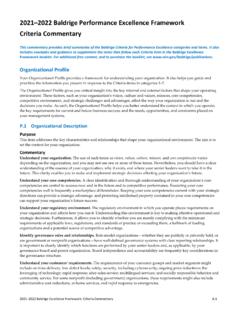Transcription of White Paper Technology and Innovation for the Future of ...
1 Technology and Innovation for the Future of Production: Accelerating Value CreationMarch 2017In collaboration with KearneyWhite PaperThe views expressed in this Briefing Paper are those of the author(s) and do not necessarily represent the views of the World Economic Forum or its Members and Partners. Briefing papers are submitted to the World Economic Forum as contributions to its insight areas and interactions, and the Forum makes the final decision on the publication. Briefing papers describe research in progress by the author(s) and are published to elicit comments and stimulate further Economic Forum91-93 route de la CapiteCH-1223 Cologny/GenevaSwitzerlandTel.
2 : +41 (0)22 869 1212 Fax: +41 (0)22 786 2744 Email: World Economic Forum 2017 All rights reserved. No part of this publication may be reproduced or transmitted in any form or by any means, including photocopying and recording, or by any information storage and retrieval system. REF 110517 - case 000308963 Technology and Innovation for the Future of Production: Accelerating Value CreationContentsPrefaceThis World Economic Forum White Paper is proposed in the context of the Forum s System Initiative on Shaping the Future of Production, launched in 2016, which seeks to better understand transformations in global and local production systems and to provide a platform for pilots and collaborative efforts that stimulate Innovation , sustainability and employment.
3 The Forum defines the world of production as the full chain of activities to source-make-deliver-consume-reintegrate products and services, from origination, product design, manufacturing and distribution to customers and consumers, incorporating principles of the circular economy and reuse. Production fundamentally impacts economic structure at global, regional, national and local levels, affecting the level and nature of employment, and today is inextricable from environmental and sustainability concerns, considerations and initiatives. Collectively, the sectors of production have been the source of economic growth in developed and developing nations alike, a major source of employment for a rapidly evolving and increasingly skilled workforce, and they continue to be the dominant focus of Innovation and development efforts in most countries.
4 The transformative potential of Technology in production systems is widely recognized, even while the precise configuration and extent of the possible transformation remain unknown. Trends towards higher levels of automation promise greater speed and precision of production as well as reduced exposure to dangerous tasks for employees. New production technologies could help overcome the stagnant productivity of recent decades and make way for more value-added activity. The extent of automation is, however, causing significant anxiety about issues of employment and inequality. The new technologies of the Fourth Industrial Revolution have the potential to transform the global geography of production and will need to be deployed in ways that address and adapt to the impact of climate change.
5 This White Paper , prepared in collaboration with Kearney, explores the new Technology landscape focusing on five technologies that will have the most immediate impact on production-related sectors, individually and in combination. It raises questions for chief executive officers, government leaders, civil society leaders and academics about the implications for individuals, companies, industries, economies and society as a whole, and is intended to bring new perspectives and generate responsive and responsible MartinMember of the Managing Board, World Economic ForumHelena LeurentHead of Government Engagement, Member of the Executive Committee, World Economic Forum3 Preface 4 Executive summary 6 Introduction to Shaping the Future of Production.
6 Technology Foresight Series 9 Disruptive technologies shaping production 9 Cross- Technology insights 12 Connecting the unconnected with the internet of things 13 Advanced analytics and artificial intelligence coming of age 14 Advanced robotics emerging from its safety cage 16 Wearable technologies digitize the workforce 17 3D printing shapes the Future one layer at a time 19 The promise of converging technologies: New opportunities to create value 30 Implications for leaders 32 An agenda for action 34 Acknowledgements 36 Endnotes 4 Technology and Innovation for the Future of Production: Accelerating Value CreationExecutive summaryTechnologies of the Fourth Industrial Revolution1 are blurring the lines between the physical, digital and biological spheres of global production systems.
7 The current pace of technological development is exerting profound changes on the way people live and work. It is impacting all disciplines, economies and industries, perhaps none more so than production, including how, what, why and where individuals produce and deliver products and services. However, amid overcharged media headlines and political and social landscapes, business and government leaders find it difficult not only to have an accurate understanding of where these technologies can create real value, but also to successfully focus on the appropriate and timely investments and policies needed to unlock that address some of these issues and shed light on Technology s impact on global production systems, the World Economic Forum introduced the System Initiative on Shaping the Future of Production at the beginning of 2016.
8 This White Paper summarizes the key insights and understanding of the five technologies with the greatest impact on the Future of production, and the role of government, business and academia in developing Technology and Innovation . The insights are based on more than 90 interviews with chief operations, Technology and information officers of companies developing and implementing in-scope technologies across 12 industries. The findings were validated through discussions with over 300 business leaders, policy-makers and academics conducted in six regional findingsBusiness leaders and policy-makers must keep track of more than 60 technologies and philosophies impacting production systems today (see Figure 1).
9 These technologies are obliging companies to rethink and retool everything they do internally, and governments to reassess their national competitive advantages and development strategies. The chief executives and chief operating officers who embrace these technologies and rapidly transform their enterprises will set their companies on course for success. The government leaders able to set the right policies, develop and diffuse these technologies, and ready their workforces, infrastructure and supply chains to leverage them, will position their economies for the broader Technology landscape, five technologies are transforming global production systems and unleashing a new wave of competition among producers and countries alike.
10 Exciting advances in the internet of things, artificial intelligence, advanced robotics, wearables and 3D printing are transforming what, where and how products are designed, manufactured, assembled, distributed, consumed, serviced after purchase, discarded and even reused. They affect and alter all end-to-end steps of the production process and, as a result, transform the products that consumers demand, the factory processes and footprints, and the management of global supply chains, in addition to industry pecking orders and countries access to global value five technologies, in different stages of technical readiness and adoption, also come with varied levels of uncertainty about their Future direction.
